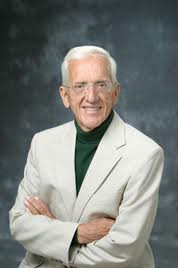by Colin Campbell
Re-thinking the Power of Nutrition
“If a little bird were to take a grain of sand in its beak from the seashore and somehow manage to fly it to the furthest quasar in the universe, and if it returned and repeated the process until all the sand of the oceans both from the beaches and the bottoms were gone, eternity would be just beginning.” — Anonymous, written on the wall of the Maté Factor Cafe, Ithaca Commons, N.Y.
If this book does nothing else, I hope that it convinces you that we need to change the way we think about health. We must recognize nutrition as a cornerstone of our health care system, not a footnote. We must also recognize the limitations of our reductionist paradigm and learn to accept the validity of evidence beyond what that paradigm allows us to perceive. If we are truly to understand the meaning of nutrition, its effect on the body, and its potential to transform our collective health, we must stop seeing reductionism as the only method by which to achieve progress and start seeing it as a tool, the results of which can only be properly evaluated within a wholistic framework. And we must be willing to embrace wholism beyond the realm of nutrition. The body is a complex system. Bodies gathered together in societies are even more complex. And human life, interwoven with all of nature on this planet, is complex beyond our imagining. We cannot afford to ignore this complexity any longer.
I realize that what I’m proposing here is a tectonic shift in the way we think about nutrition, medicine, and health. The process may not be easy. But it is possible. I know, because this shift is one I experienced myself over the course of my career.
My doctoral dissertation, written over 50 years ago, was on the greater biological value of animal-based protein. I believed then, as firmly as any meat-loving cattle baron, that there was no better, more beneficial food than the protein we received from meat and milk. But as you have seen here and in The China Study, my position today is very different. I am now convinced that there is no healthier way to eat than a whole food, plant-based diet, without added fat, salt, or refined carbohydrates.
For me, the source of that shift was evidence — the empirical, peer-reviewed evidence produced over many years by my own research group. It was bolstered in later years by the evidence produced by my colleagues in clinical medicine, who have been independently and convincingly documenting the WFPB diet’s ability to reverse serious diseases in ways unmatched by pills and procedures.
But this shift in thinking required more than just evidence. It also required a shift in my understanding of the body, and therefore in the way I understood evidence related to the body’s functions. And this shift is one that I hope this book will help you achieve, as well.
Early on in my career, even before I began the work on AF and MFO we’ve talked about at some length here, I had a conversation with a nutrition professor of mine at Cornell about a set of research studies that looked at the role played by four nutrients in two diseases: encephalomalacia (softening of brain tissue) in chicks and muscular dystrophy (progressive muscle weakness) in calves. It turned out that the activity of any one of these four nutrients could substantially change the activities of the other three, leading to changes in the body’s response to the diseases.
When I asked my professor how common interactions like these were for other nutrients, he replied that although they were quite common, they did not get much attention in experimental research; they were too difficult to study and almost impossible to interpret adequately. Although nutrients act in complex ways in nature, we still had to think about their activities in a simple, linear way to produce acceptable scientific evidence. In other words, even though we could see the applicability of the wholistic framework, we still had to pursue our research as if reductionism were the whole truth.
That we ignored this complexity was something that troubled me greatly, and in a way it drove the direction I chose in my research into AF and MFO. I might not have begun this research had I not been willing to question what appeared to be an unquestionable, reductionist fact: AF causes liver cancer. If I had not been so interested in the idea of complexity, I might not have looked for factors other than AF that could affect the development of liver cancer. I might not have discovered that, in fact, AF was not even the most important factor affecting liver cancer development. And I would not have gained the much deeper understanding and appreciation of our biological complexity that I now possess and seek to share with you.
This understanding of biological complexity was crucial to changing the way I viewed the findings of reductionist studies. It made me realize how important it was to view such findings not as truths that are complete in and of themselves, but as pieces of a larger, more meaningful puzzle. Any individual finding — say, that MFO’s catalysis of AF leads to liver cancer, or that beta-carotene protects against lung cancer — does not tell the whole story. Therefore, choosing a course of action based on that individual finding, without looking at the larger wholistic framework — avoiding AF to avoid liver cancer, or taking beta-carotene supplements to prevent lung cancer — has the potential to be either significantly less effective than other ways of addressing the same problem or even outright dangerous.
The findings in our reductionist experiments with MFO and animal protein are important, but not for their specific results (e.g., animal protein is a critical causal factor in liver cancer) so much as for the biological principles they suggest. These principles have helped me understand how cancer works and how nutrition, taken as a whole system, affects the development of cancer and possibly other diseases as well. The fundamental biological properties these MFO experiments revealed suggested a need to investigate the impact of animal protein in real people, in the real world, in all its complexity. It was with this mindset that we designed the project in rural China that came to be known as The China Study.
I’ve given much thought to the next steps that individuals who are sufficiently convinced by what I’ve shared, both here and in The China Study, and who want to help create change, might take. The most important step is to change the way you eat. The diet is simple: Eat whole, plant-based foods, with little or no added oil, salt, or refined carbohydrates like sugar or white flour. (Though it may take some research, there are cookbooks out there that will fit your needs — more of them now than ever before.) There is nothing more convincing than experiencing the change for oneself. That crucial shift in the way we think about our health will happen, one person at a time. Eventually, policy will begin to change. Industry, deprived of the income produced by ill health and our ignorance, will follow.
It’s time for us to begin a real revolution — one that begins by challenging our individual beliefs and changing our diets, and ends with the transformation of our society as a whole.
From Dr. T. Colin Campbell’s New York Times bestselling book, Whole: Rethinking the Power of Nutrition. The follow up to The China Study, Dr. Campbell’s popular nutrition text, Whole takes decades of research on plant-based eating and reveals the “wholistic” workings of nutrition. Learn more at TheChinaStudy.com.



